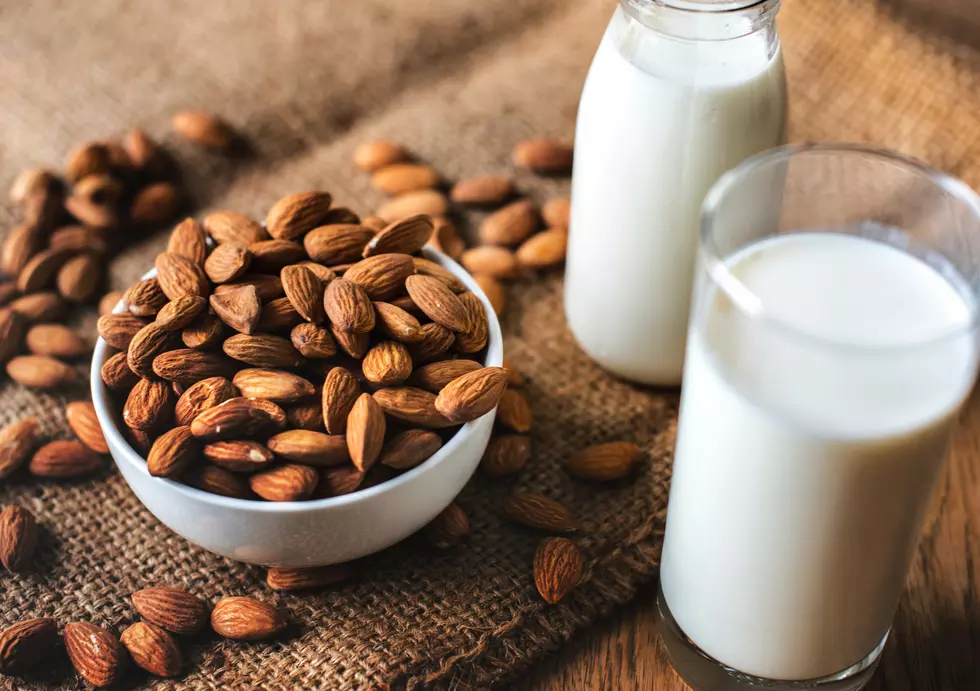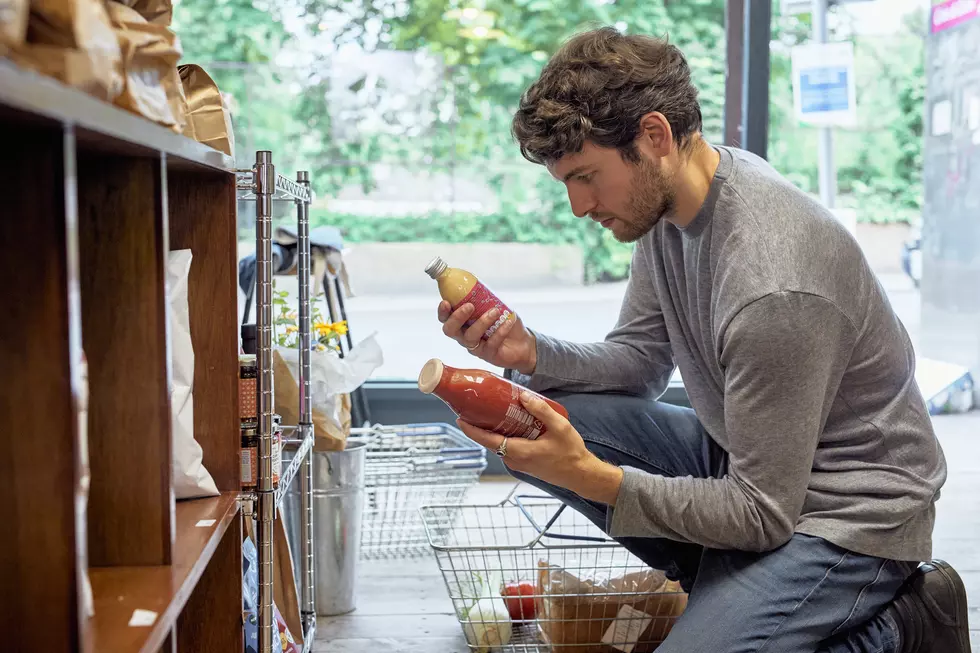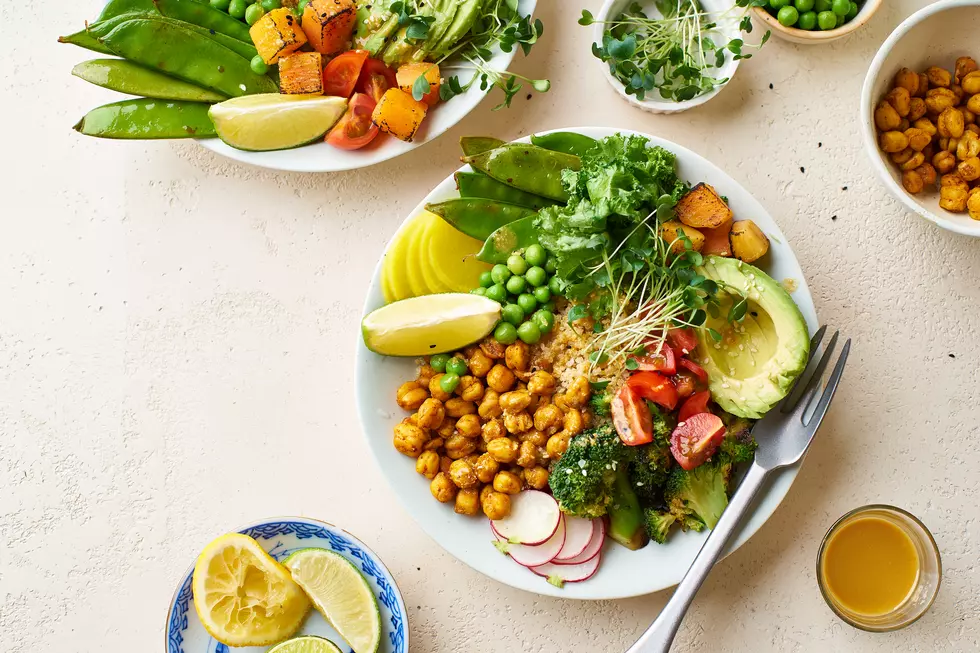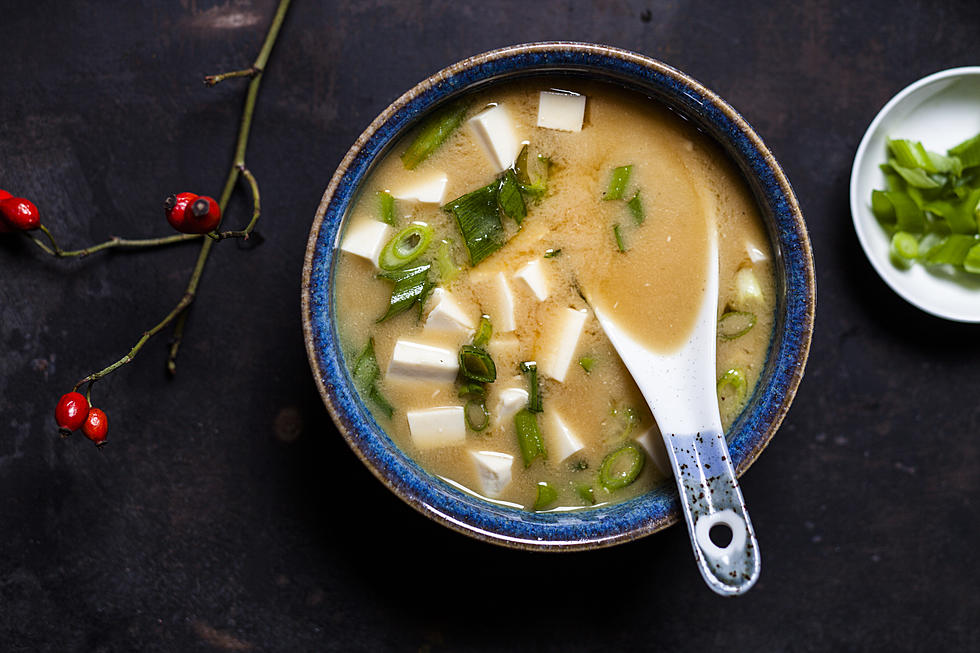
The Top 10 Plant-Based Sources of Calcium and How Much You Really Need
Like any good child of the ’80s, I grew up on a steady diet of catchy commercials and campaigns. I knew which coffee was good to the last drop, what my brain would look like on drugs and what could save Grandma’s life if she’d fallen and couldn’t get up. But perhaps more than anything, I knew that milk did a body good…Or that's what we were told.
While some of that ad-acquired knowledge may seem dated now, that last tidbit has stubbornly stuck. In fact, very few people seem to question the idea that milk is a dietary must-have, whether they’re from Generation X, Y or Z. We have been told time and again that milk is the way to get the recommended amount of calcium for proper bone health, and this lesson is reinforced every day with kids at almost every meal. In short, our thoughts on milk have been shaped by marketing—and money. Lots of it. Millions are spent every year in advertising, government subsidies and lobbying by the dairy industry.
Sure, cow’s milk is an easy way to get calcium—you can get around 30 percent of your daily recommended intake from a single glass—but it’s not the only way. “With careful planning, attention and [possibly] supplementation, you can absolutely meet your calcium needs on a strict vegan or vegetarian diet,” says Brooklyn-based dietitian Maya Feller, RD, who recommends a simple daily multivitamin for that supplementation. “You can actually meet your needs if you have a balanced diet that is close to the dietary guidelines.”
Milk Isn't the Only Calcium Game in Town. The real clincher is that milk and other dairy products may not even the best way to get your daily dose of this essential mineral. For starters, Feller notes that most people aren’t drinking a plain glass of milk. Instead, kids often drink chocolate milk, and both children and adults eat dairy products like yogurt that usually have a ton of added sugar. Beyond that, full-fat dairy products contain saturated fats, while low-fat dairy might not keep people full. To be sure, there are plenty of studies extolling the benefits of milk, but others are starting to poke holes in milk’s mythologic status—with drinking too much possibly linked to brittle bones in adults, obesity in children, and higher risks of ovarian and prostate cancer.
There is one thing that’s not in dispute: You do need calcium. The majority of it is used for bone health, and in fact, 99 percent of the body’s calcium is stored in the bones and teeth, where it is continually used to strengthen and build bone. According to the National Institutes of Health, it’s also important for your heart, nerves, muscles and hormonal secretions.
How Much Calcium Do You Need? “How much calcium you need actually varies by your stage of life, which is important to take into consideration,” says Feller. “For most adults, 1,000mg a day is fine.” Women over 50 and men over 70, however, require about 1,200mg. Things get a little trickier with kids: Children ages 1–3 need 700mg, while those ages 4–8 need 1,000mg and ages 9–18 need 1,300mg.
So how can you reach that recommended daily intake if you want to consume less animal milk—or give it up altogether? Feller recommends calcium-packed foods like tofu, which has about 434mg of calcium per serving; Pinto beans (and other beans), a cup of which can provide around 26 percent of your recommended daily intake; Almonds and other nuts; and spinach, kale and other leafy greens. Plus, alternative milks made from soy, nuts, rice and peas are often additionally fortified with calcium. That can also be true of certain cereals, breads, whole grains, orange juice, and non-dairy cheeses. You’ll need to become an expert label-reader to make sure you’re choosing wisely. Some of them even boast more calcium per cup than regular daily milk, so if this is your concern choose almond milk for your am sip.
The Top 10 Sources of Calcium to Make it Easy to Get Your Daily Dose:
1. Pinto beans have 78.7 milligrams in one cup so add these to any salad, dip or burrito.
2. Molasses has 82 milligrams in 2 tablespoons. Use it in baking instead of sugar. Look for Blackstrap molasses, and keep in mind that these have been used in recipes for 100s of years, especially in the South. Molasses is also believed to help relieve stress and anxiety. For more on three easy ways to get more molasses into your diet check out this story.
3. Tempeh has 96 milligrams of calcium in 100 grams when cooked. You can make chicken substitute from it.
4. Tofu has about 104mg in one ounce when prepared pan-fried. Throw it in your stir fry, or order it at your next Chinese meal with veggies. It's the perfect non-meat protein. (Note look for the calcium quotient on the Nutrition Facts on the label.)
5. Bok choy has 158 milligrams of calcium in one cup. Add it to your soup, stir fry or salad.
6. Soybeans have 175 milligrams of calcium per cup. Sprinkle them on a salad.
7. Kale has 177 milligrams in one cup. The heroic green makes a great salad, goes in smoothies and delivers a healthy dose of fiber as well.
8. Turnip greens have 197 milligrams in one cup. Add them to your favorite soup or smoothie
9. Collard greens have 268 milligrams of calcium in one cup. Substitute it for string beans.
10. Alternate milks like almond, soy or rice milk have 300-500 milligrams of calcium in 8 ounces so use any of these on your cereal or in your morning smoothie.
How to get more calcium: Here’s a great trick from the Mayo Clinic when trying to figure out just how much calcium you’re getting from a food: If a label lists the percentage you’ll be getting from a serving, add a zero to the end of it to find out what that translates to in milligrams. For example, 30 percent of your DV would be 300mg.
The Super Smoothie for Calcium: One of Feller’s favorite and tastiest ways to pack a huge calcium punch is with a strategically devised smoothie. Here’s her simple suggestion: 8 ounces of fortified cashew milk, 3 cups of spinach, 2 tablespoons of almond butter, 1 serving of pea-protein powder, 1 banana, and 1/2 cup of frozen peaches. Mix it up, and voila—you’ve got a delicious concoction that contains 20 percent of your calcium for the day. “Twenty percent is considered high,” she says, “so this breakfast smoothie would be a good source of calcium.”
One note: it’s always a good idea to talk to a registered dietitian if you’re thinking about banishing dairy from your diet—and especially if you have a child who wants to do so. According to Feller, research shows that children who are strict vegans and vegetarians tend to have a slower rate of growth than their meat-eating counterparts and that they tend to be leaner. Don’t worry: They will grow as long as they eat properly, but it might be a slightly different trajectory.
Getting plant-based kids to eat “properly” can be a challenge. “When kids come to my office, I say, ‘Vegetarian means that you’re going to be eating vegetables, so you have to eat the entire rainbow of vegetables, plus beans, nuts, and seeds, to get all of the vitamins and minerals that your body needs so you can continue to grow,’” she says. “A diet that’s high in refined carbohydrates and potatoes won’t work.”
One more important note about calcium: It is possible to have too much calcium in your body. If you have a history of thyroid problems in your family, ask your MD if you could be at risk for hypercalcemia, which is when you have too much calcium in your blood, which can cause bone problems, kidney stones, and other serious health issues. Most people don't have to worry about too much calcium but find out if you're at risk before loading up your plate. Certain cancers can also lead to too much calcium in the blood, so any time you find out that you have elevated calcium levels you need to immediately follow up with an MD.
The bottom line: You don’t need milk in your diet…But you do need to do your research and stay vigilant to make sure you’re getting enough calcium. You also probably shouldn’t get your nutrition facts from commercials. For the easiest way to get more calcium, read this piece on the wonders of molasses when it comes to three important nutrients: Calcium, iron, and potassium.
More From The Beet









